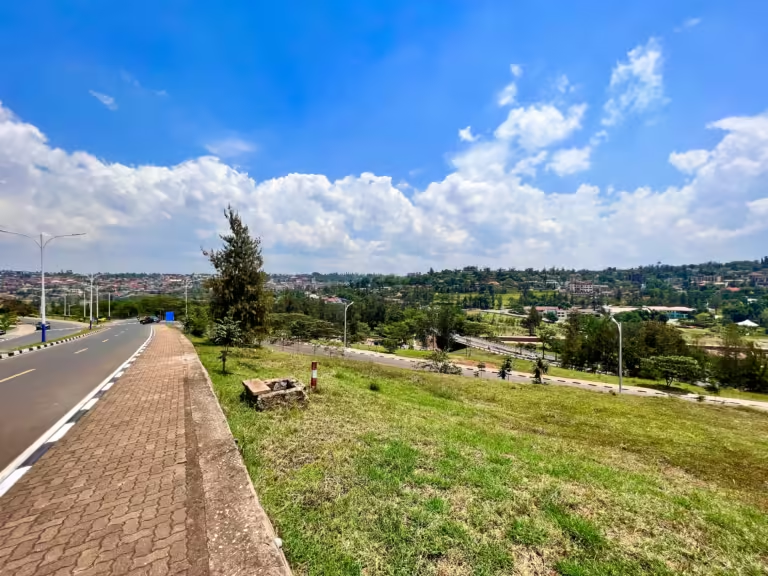Travel experience
Traveling is one of the most enriching and rewarding experiences a person can have. It is not just about moving from one place to another, but rather a comprehensive experience that includes exploring new cultures, learning different languages, and interacting with people from diverse backgrounds. Each person has a unique travel experience based on their personal goals and interests.
Through travel, individuals can gain new skills and develop their personal and professional capabilities. For example, travel can provide students with the opportunity to study abroad and learn academic subjects in diverse learning environments. Professionals can also benefit from travel by expanding their professional network and learning about new working methods.
Real-life travel experiences show how these trips can positively impact people’s lives. One example is the story of Ahmed, a young man from Egypt, who decided to travel to Japan to complete his graduate studies. During his stay, he not only learned new subjects, but also gained a deep understanding of Japanese culture and formed strong friendships with Japanese and foreign classmates. This experience helped him greatly develop his personal and professional skills.
Another example is the story of Sarah, who decided to travel to India to volunteer with an NGO. During her time as a volunteer, she was able to learn Hindi and learn about local traditions and cultures. This experience was not only personally beneficial, but also helped her develop a deeper worldview and appreciation for cultural diversity.
Hence, it can be said that the travel experience contributes greatly to enriching the lives of individuals, making it an essential part of the modern lifestyle. Whether the purpose of travel is to learn, work, or explore, the benefits that can be gained from these experiences are invaluable.
Benefits of travel
Traveling is an effective way to improve your mental and physical health. Exposure to new environments and a change in your daily routine can help reduce stress and anxiety levels. Studies show that traveling can improve brain plasticity and increase feelings of happiness and contentment. For example, a study by Cornell University showed that simply planning a vacation can boost people’s happiness levels.
In terms of physical health, traveling can encourage physical activity. Exploring cities on foot or participating in sports activities such as scuba diving or skiing can boost your fitness. Additionally, exposure to new places can strengthen your immune system by exposing you to a variety of bacteria and viruses, which boosts your body’s immunity.
Culturally and cognitively, travel opens up new horizons and provides the opportunity to learn about different cultures. Travel can enhance understanding and tolerance between cultures through direct interaction with people and learning about local customs and traditions. This interaction helps in forming a broader view of the world and enhances critical and creative thinking.
On the other hand, travel strengthens personal and social relationships. Whether you travel with family or friends, shared experiences can strengthen bonds and relationships. Even traveling alone can be an opportunity to make new friends, as new environments provide opportunities to connect with people from diverse backgrounds. Research from Harvard University suggests that strong social relationships are linked to increased happiness and longevity.
These multiple benefits of travel support the idea that it is not just a luxury, but a necessity to improve the quality of life. Whether the goal is to seek pleasure, education, or health, travel offers comprehensive benefits that are worth investing in.
What do you think about traveling?
Traveling is a personal experience that varies from person to person based on a variety of factors such as cultural background, personal interests, and economic status. Some people see travel as an invaluable opportunity to explore the world and learn about new cultures, while others may find travel stressful and expensive.
On the positive side, traveling is a great way to broaden your horizons and gain new experiences. Travel can enhance your social skills and increase your understanding of the world around you. Some people may find traveling an opportunity to escape the stresses of everyday life and rejuvenate their minds and bodies. Experiencing local cuisine, interacting with locals, and exploring historical and cultural sites can all be part of a great adventure.
On the other hand, there may be some negative views about traveling. Some may consider traveling to be a drain on financial resources and time, and increase stress especially when facing problems such as flight delays or lost luggage. In addition, some may feel uncomfortable when being in an unfamiliar environment or facing a language barrier.
Individuals’ opinions may vary based on their previous travel experiences. For example, those who have had positive experiences may be more motivated to continue traveling and exploring new places. Conversely, people who have had difficulties or negative experiences may be more reluctant to travel.
We invite readers to share their personal travel experiences and opinions. What aspects of travel do you like? Have you faced any challenges? We welcome your opinions and suggestions in the comments section below.
What are the advantages of traveling?
Traveling greatly enhances personal resilience. When people are exposed to new and different experiences in unfamiliar environments, they learn how to adapt to changing circumstances and deal with challenges effectively. This acquired resilience can be useful in everyday life and work, as people become more open and prepared to face unexpected situations.
Additionally, traveling is an opportunity to gain new skills. Whether it’s learning a new language, gaining cross-cultural communication skills, or even learning about local culinary arts, every trip provides endless opportunities for learning and personal development. For example, someone traveling to Japan may find themselves learning the basics of the Japanese language and the traditional arts of sushi, adding to their personal and professional skill set.
Learning about new cultures is also a major benefit of travel. By interacting with locals and experiencing different customs and traditions, one can broaden one’s horizons and become more understanding and tolerant of different cultures. This deeper understanding of others can contribute to building stronger international relations and greater cooperation between peoples.
There are many examples and success stories of people who have benefited from travel in different ways. For example, there are those who decided to leave their traditional jobs and embark on exploratory trips around the world, which led to discovering a new passion and achieving great success in fields such as photography or travel writing. There are also those who have benefited from travel to advance their careers, by attending international conferences or building new business relationships in different countries.
Why is travel fun?
Traveling is one of the most enjoyable activities for many people, for several reasons related to adventure, new experiences, and discovering amazing nature. Traveling provides the opportunity to escape from the daily routine and get to know new places and cultures. These experiences add great value to personal life and raise the level of psychological well-being.
One of the most fun elements of travel is the unexpected adventures that a traveler can encounter. Whether it’s navigating an unfamiliar city, climbing a high mountain, or even trying a new local cuisine, these experiences create lasting memories and contribute to a sense of accomplishment. In addition, interacting with new people can open up new horizons and enhance social skills.
Nature also plays a big role in making travel enjoyable. From beautiful sandy beaches, to towering mountains, to dense forests, nature offers unparalleled visual and spiritual experiences. Many travelers find nature a refuge from the stresses of everyday life, and enjoy the peace and tranquility it provides.
The inspirational side of other travelers’ stories and experiences cannot be overlooked. Many people find encouragement in the stories of friends or family who have shared their own enjoyable experiences. For example, someone might recount how their trip to Japan was full of cultural and natural surprises, making them want to come back again.
Ultimately, travel makes life brighter and more experiential. Whether it’s new adventures, discovering breathtaking nature, or interacting with diverse cultures, the beauty of travel lies in those little moments that linger in your memory for a lifetime.
What opportunities does travel offer to a person?
Traveling offers many opportunities that contribute to human development on various levels. From an educational perspective, traveling is a golden opportunity to learn from different cultures and learn about the history and traditions of peoples. One can gain in-depth knowledge by visiting museums, art galleries, and historical landmarks. In addition, study trips or academic exchange programs can be a useful way to enhance education and increase language skills.
Professionally, travel can open new doors in the job market. Training opportunities or working abroad can help expand your professional circle of acquaintances and open up new avenues for career development. Travel can also help build a new professional network and meet colleagues from different fields, which may help in obtaining new job opportunities or developing existing projects.
Traveling is also an opportunity to invest in yourself and develop your personality. Traveling can boost your self-confidence and increase your ability to deal with different challenges and situations. By meeting people from diverse backgrounds, you can learn new ways of thinking and innovative solutions to problems. Traveling can also help you achieve psychological and emotional balance by getting away from your daily routine and gaining new experiences.
One of the great benefits of travel is that it helps you achieve your personal and professional goals. For example, someone might find their passion in a certain field after visiting a country that specializes in that field, or they might discover an ideal job opportunity through the network of relationships they built while traveling. Therefore, it can be said that travel is not just a means of entertainment, but an effective tool for achieving ambitions and self-development.
Cons of travel
While traveling offers many benefits and rich experiences, it is not without some drawbacks and problems that travelers should be aware of. One of the most prominent challenges is financial. Traveling can be very expensive, from airfare and accommodation to food and local transportation costs. These costs can lead to financial stress, especially if there is no good budget planning ahead.
Stress is another challenge that can come with travel. Constant changes in environments, adjusting to new time zones, and intense schedules can lead to physical and mental exhaustion. Travelers may find themselves needing a recovery period after returning from a trip.
Other risks that may accompany travel are health and safety risks. Exposure to new foods and different environments can lead to health problems such as food poisoning or infectious diseases. Additionally, some destinations may be unsafe due to crime or political unrest. It is important to take precautions such as obtaining health insurance and researching information regarding security in the target destination.
It should be noted that these negatives do not necessarily mean that travel is discouraged, but rather aim to present a balanced picture of travel so that readers are prepared to face the challenges. Good planning and awareness of potential risks can help reduce these negatives and ensure an enjoyable and safe travel experience.
Benefits of travel and tourism
Tourism is one of the most important economic sectors in many countries around the world, as it contributes significantly to supporting local economies and sustainable development. According to the World Tourism Organization (UNWTO), tourism contributed 10.4% to global GDP in 2019. This reflects the importance of tourism in boosting economic growth and creating jobs.
Economically, tourism is a major source of national income, providing hard currency and supporting local industries such as hotels, restaurants and transportation. For example, in countries such as Spain and Thailand, tourism is one of the largest sources of income, contributing to the improvement of infrastructure and public services.
In addition to the economic benefits, travel plays an important role in promoting cultural understanding between peoples. Through direct interaction with different cultures, travelers gain a deeper understanding of the world around them, which contributes to peaceful coexistence and dialogue between civilizations. Studies show that individuals who travel frequently have a higher level of tolerance and understanding towards other cultures.
One important social aspect of travel is job creation. The tourism sector provides millions of jobs worldwide, from tour guides to restaurant and hotel workers. According to the International Labour Organization (ILO), the travel and tourism sector provided around 320 million jobs in 2019, accounting for around 10% of total global employment.
Overall, travel and tourism have many benefits that go beyond entertainment. They help boost local economies, promote cultural understanding, and create jobs, making them an integral part of sustainable development and the global community.
Conclusion about travel
Traveling is a rich experience that combines pleasure and benefit, as it gives individuals the opportunity to discover new cultures, connect with people from all over the world, and broaden their horizons. Throughout this blog, we have reviewed the many benefits of travel, from psychological and social benefits to the personal and professional developments that an individual can achieve through travel. Interacting with new environments and unfamiliar experiences enhances a person’s ability to adapt, and opens the way for them to learn new skills and gain different perspectives.
We encourage readers to reflect on their personal travel experiences and how they have impacted them. Were there specific moments that left a mark on their lives or changed the way they think? Did they discover a new passion or find deeper meaning in their lives through travel? These reflections are important to understanding the true value of travel in our lives.
Traveling is not just a means of entertainment and relaxation, it is also a means of personal growth and connection with the world around us. When we travel, we are not only exploring places, but also exploring ourselves. So, we advise readers to go ahead and explore the world with open eyes and open hearts. New destinations may be full of challenges, but they are certainly full of opportunities and surprises.
In conclusion, we would like to encourage everyone to take advantage of every opportunity to travel and experience something new. Whether it is a short trip to a nearby city or a long adventure to a faraway country, every trip has countless benefits. Enjoy traveling, learn from your experiences, and always be ready to discover the world around you. Travel is a continuous journey towards learning and personal growth, so let’s make it an integral part of our lives.






